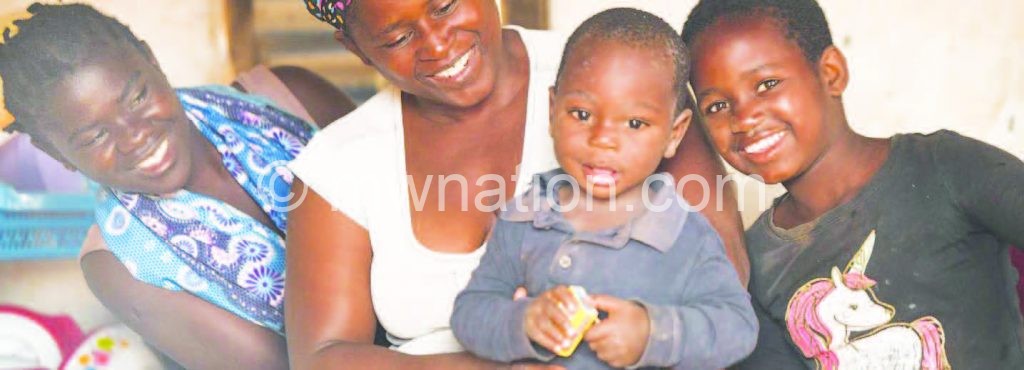Surviving the lean season
The Malawi Vulnerability Assessment Committee estimates that 2.6 million people in the country require food aid to beat the prevailing lean season. In this encounter with our Features Editor JAMES CHAVULA, social cash transfer recipient Filesi Singano shares experiences of a typical vulnerable household.
For Singano, the end of every year is not about annual festivities, but the beginning of the struggle with food scarcity.

The lean season spans almost six rainy months as the 46-year-old mother of four no longer yields enough food to take her family to the next harvest.
“Food scarcity bites hard from October to March and food prices rise every week. Hunger kicks in just when we are supposed to buy seed and fertiliser in time for the growing season,” says the single mother, beneficiary of the Social Cash Transfer Programme (SCTP), known as Mtukula Pakhomo, in Kadzakalowa Village in Ntcheu District.
The Mtukula Pakhomo cushions the most urgent needs for Singano and her children.
However, with the little earnings she makes in addition to sporadic piecework, Singano has to choose between buying farm inputs or daily food.
“Immediate food needs win. I don’t want my school-going children to starve,” she says.
Singano has been supporting her children singlehandedly since she and her husband separated in 2009.
Her household consumes a bucketful of maize within 10 days, and they require two more in a difficult month.
Currently, the family receives K6 400 under the SCTP.
“This amount gets us a 20kg-bucketful of maize during the hunger period and twice as much during the rest of the year,” she explains. “Food prices usually double up within a month into the lean season. With the SCTP cash transfer and meagre earnings from casual work, we fail to sustain weekly purchases of a bucketful of maize and it’s hard to let my children go to school on an empty stomach.”
Chronic food shortage leaves Singano hopping from one village to another, doing low-paying jobs in homes and farms of well-off neighbours.
“During the growing season, I spend more time doing piecework in crop fields of well-off neighbours at the expense of ours.
Malawi Government together with Unicef, World Food Programme (WFP), the Foreign, Commonwealth and Development Office and the Joint SDG Fund are working together to make the SCTP more sensitive to climate shocks.
This hand-to-mouth livelihood mirrors the vulnerability of most ultra-poor Malawians, almost a tenth of the southern African nation’s population of 18 million.
In Ntcheu, the Government of Ireland supports the Ministry of Gender, Community Development and Social Welfare to implement Mtukula Pakhomo.
The cash transfers go to vulnerable groups, including women-headed households, child-headed households, the elderly, and persons with disabilities, chronic illness as well as those that cannot work anymore.
In the lean season, better-off farmers hire hands to do farm chores. This puts Singano in a dilemma as she needs to make a choice between catering for her own field and earning quick cash for her daily meals on other peoples’ farms.
She explains: “As food prices get out of hand, we have to look beyond current food needs. The SCTP transfers help cover basic household needs for the most part of the year, but it is insufficient to sustainably cater for the same in the lean season,”
Singano recalls that when she received the money, she bought “just enough grain” for the children to eat something when going to school.
This is a common challenge for many SCTP beneficiaries.
Singano says she constantly resists desperation to stop children from going to school so that they help her earn more from piecework.
“I want them to learn until their dreams come true. I didn’t achieve my aspiration to become a teacher because I dropped out in Standard 8 in 1992,” she explains.
Such stories excite Ntcheu district social welfare officer Gift Kambadya.
“The beneficiaries send their children to school and buy them uniforms, notebooks, pens and other essentials” he says. “However, most of them say the monthly transfers are not enough for sustainability” he states.
Singano concurs: “With more money during the growing season, we can afford daily meals and invest in our crops to increase our harvests and beat chronic hunger so no child quits school to marry or do casual work,” she explains.





